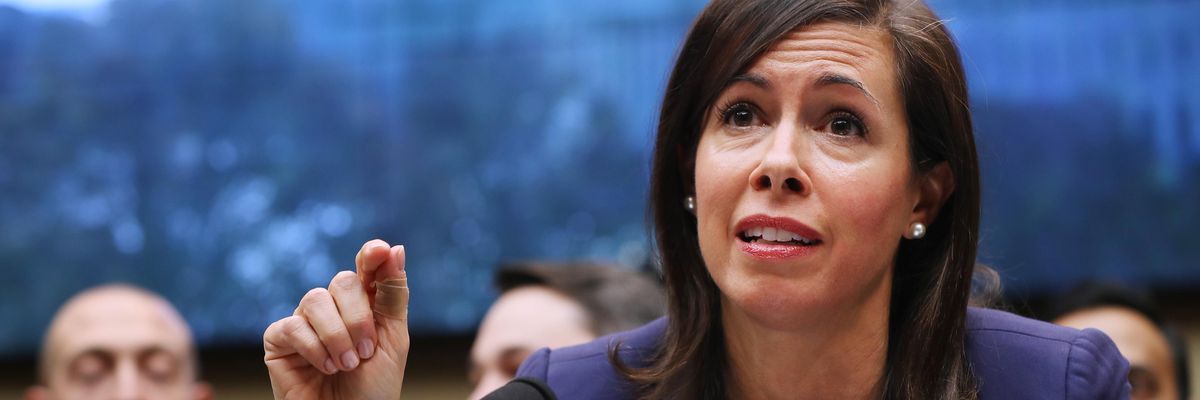
Jessica Rosenworcel was confirmed as Federal Communications Commission chair on December 7, 2021.
(Photo: Chip Somodevilla/Getty Images)
FCC Chair Rosenworcel Finally Has a Majority; Will She Deliver?
If Gomez, Starks, and Rosenworcel prove ready to follow President Biden’s lead in cracking down on dangerous concentrations of private power and control, there is no shortage of items they can quickly address.